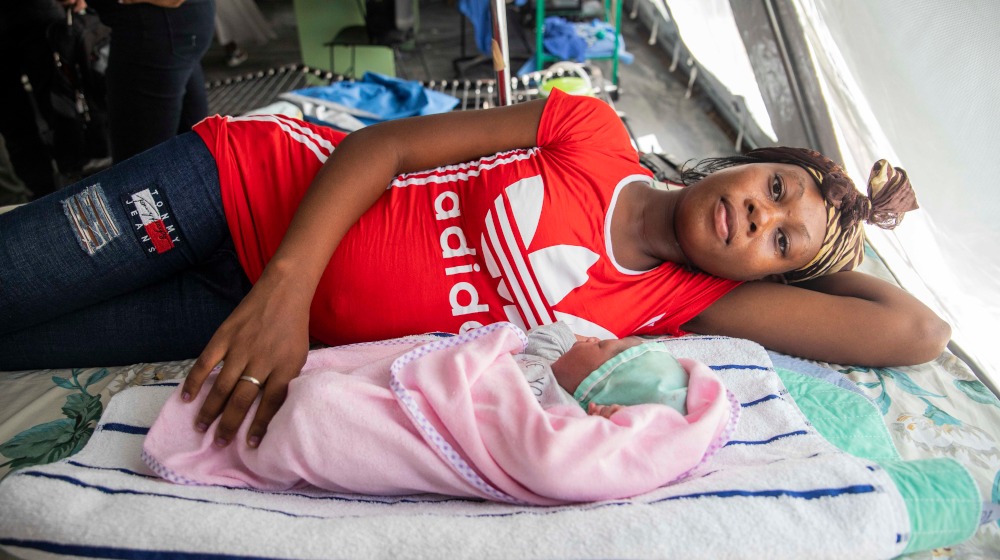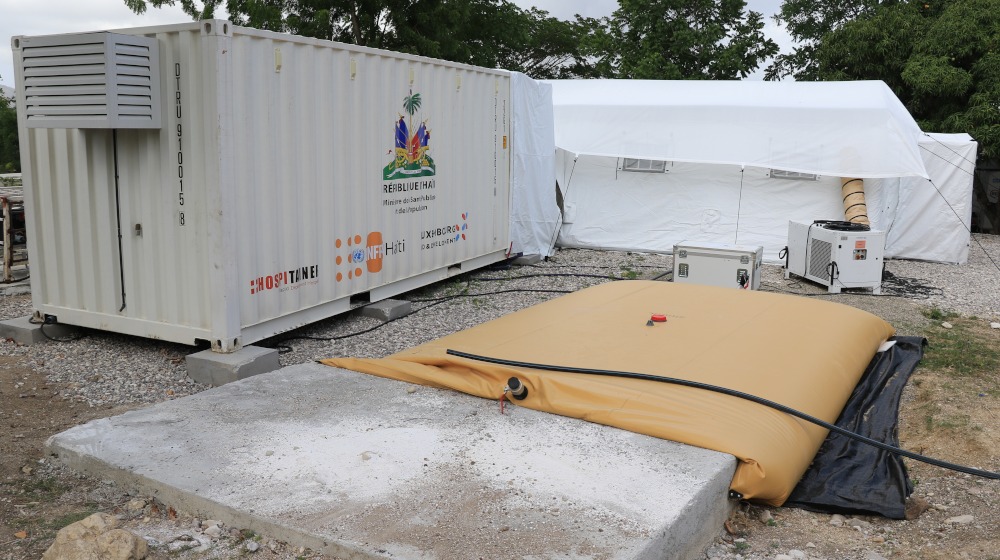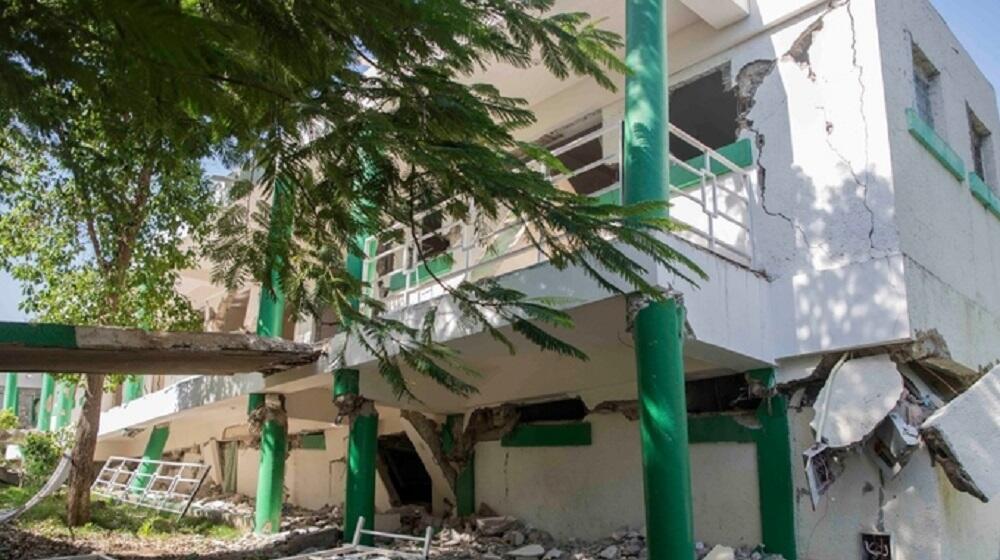Port-au-Prince, August 14, 2022 --- Norveline, 49 years old and mother of 3 children (2 girls and 1 boy), remembers the magnitude 7.2 earthquake of August 14, 2021.
She had injured her foot and her son, now 8 years old, had a fractured his kidney after their home collapsed in the locality of Gerveau, Asile, in the southwestern part of Haiti.
It was under the ruins of the Community Reference Hospital (HCR), near her former home, that she and her son received care.
Successfully operated, his son resumed his lessons in the fifth fundamental year.
Living alone with her three children, she continues her housekeeping activities on the land that housed the Community Reference Hospital.
“Since the earthquake, I have been living in a tent reinforced with sheet metal,” says Norveline. “However, the anxiety has passed,” she says. “I am doing well as well as my three children,” she adds.
Care after the earthquake
Norveline remembers the quality of care she and her son received. The health care professionals present went above and beyond to help people in need. This medical care was given under a tree, under the ruins of the Community Hospital of Asile. She has a proud candle with regard to Eludernme Déenius, head nurse and midwife, who was among these professionals.

Norveline remembers Désir Murielle giving birth to her son, Yves, in a tent on the grounds of the Asile’s community reference hospital damaged by the earthquake. The UNFPA Deputy Executive Director, Diene Keita, was visiting the place at the time of this and several other births in 2021.
Emotion and satisfaction
"It was heartbreaking that this baby was born inside the hospital which was flattened by the earthquake," Ms Keita said, adding that it was the efforts of several UN agencies - UNICEF, OCHA ( United Nations Office for the Coordination of Humanitarian Affairs) and the Humanitarian Air Service of the WFP (World Food Programme), UNHAS - who contributed to the "miracle of the birth of this baby".
The damage
The Asile’s Community Reference Hospital is one of 18 damaged or destroyed health facilities receiving UNFPA support to continue providing reproductive health services in the area most affected by the disaster.
The earthquake killed more than 2,200 people, injured more than 12,000 and destroyed essential infrastructures, including hospitals, roads, bridges, schools and households, in the departments Sud, Grand'Anse and Nippes.
Fill the void
Health services having been interrupted, UNFPA wanted to provide the departments Nippes and Sud with complete structures called hospitainers which allow the management of surgical cases including emergencies and obstetric complications.

The 2 hospitainers are granted by the Kingdom of Luxembourg to Haiti. They are intended to restore services interrupted after the earthquake. The Hospitainers are installed at Asile (Nippes) and at Camp Perrin (Sud).
Norveline welcomes the installation and assembly of the hospitainers. “Getting them up and running soon will be very helpful for patients, especially pregnant women and newborns,” she says.
Since September 2021, in response to the earthquake and other crises, UNFPA has, among other things, reached one million women with sexual and reproductive health services and supplies, including contraceptives, safe delivery and personal protective equipment.
Text: Vario Sérant
Photos: Samuel P. Laméry
Texte traduit du Français à l’Anglais par :
Jhunie Laura Ganème et Michael Johnson Leger,
Officiers communautaire


